Advances in screening technologies have been driven by the need to protect increasingly sophisticated downstream equipment by capturing and removing floating debris. Routine maintenance can dramatically improve water and wastewater treatment plant system processes.
Water and Wastewater treatment plants worldwide are being asked to do more with less these days. This increased pressure creates many challenges for operators, as they’re tasked with maintaining customer satisfaction and keeping facilities with sophisticated processes running optimally day and night. The ability to screen large debris and fine particulates is vital to protecting a municipality’s downstream
water and wastewater treatment equipment.
Modern screening technologies have made significant advancements during the last 50 years. For water treatment, coarse and fine screening helps to protect pumps, filters, membranes, and other equipment. Similarly, a wastewater plant’s headworks system is vital to treatment processes and the first line of defense for reducing maintenance throughout the system.
SCREEN MAINTENANCE NOW SAVES TIME LATER
All screen types (step, bar, spiral, drum, and traveling band screens) need to be properly maintained. For plants with reduced staff, it’s easy to reduce the time spent on equipment maintenance to focus on other priorities. However, this approach often leads to bigger headaches and even more time spent on maintenance and repair later because of inefficient equipment operation—or worse, equipment failure.
The benefits of routine equipment maintenance can’t be overstated. With a regular maintenance plan, treatment plants can keep their processes operating at optimal levels and often reduce the total time spent on maintenance. Routine screen maintenance improves the performance and life span of the screening systems as well as the entire treatment plant system through improved operational efficiencies, lower energy and maintenance costs, and reduced maintenance or replacement of downstream processes.
Clarifiers, digesters, aerators, ultraviolet light disinfection units, membrane technologies, and other systems maintain optimal performance with a properly maintained screening system in front of them. Regardless of the manufacturer or type of screen being implemented in the process, extending the life of that equipment through regular maintenance will yield major dividends.
Fortunately, regular maintenance doesn’t have to be a hassle. Operators should always follow the manufacturer’s recommended maintenance schedule for any piece of equipment. Also, consider the routine wear and maintenance items to ensure optimal performance
throughout the service life of each of the treatment components.
TOUCH BASE WITH THE MANUFACTURER
It’s a good idea to have a ready supply of commonly used replacement parts to efficiently maintain equipment. Parts to consider keeping on hand could include brushes, wiper blades, grid panels, and spray nozzles. Contact your equipment’s manufacturer for a list of recommended spare parts and understand lead times necessary to fulfill orders if the manufacturer doesn’t stock spare parts. Local distributors may also stock common replacement parts.
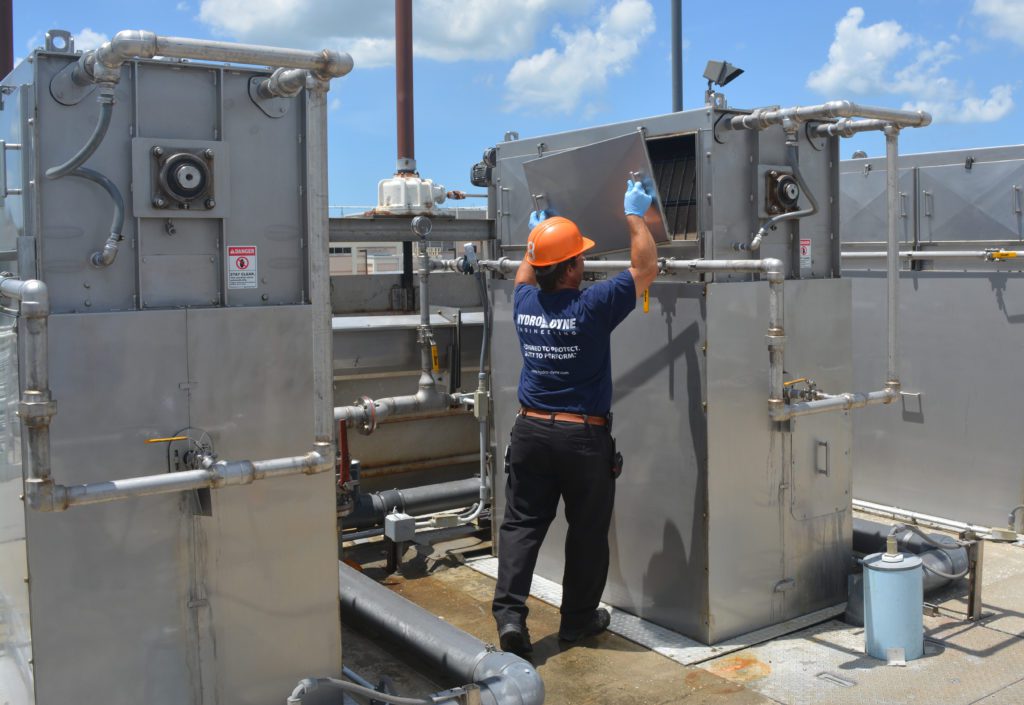
The first pretreatment provided in most surface water treatment systems and wastewater treatment plants is screening. If floating debris and gravel, sand, and other gritty substances aren’t removed, this material can jam equipment, damage pumps and piping, and greatly add to the loading on the normal treatment processes.
Clogging and corrosion are the principal problems associated with screening. Preventing these problems requires routine cleaning and inspection. Consider the following guidelines:
All screens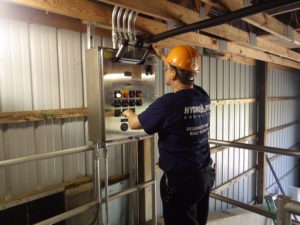 Visually inspect equipment regularly to catch potential problems early.
Visually inspect equipment regularly to catch potential problems early.
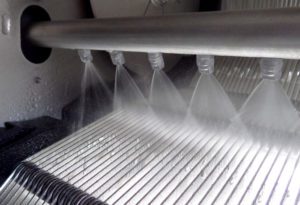
Ensure spray wash systems aren’t clogged and spray evenly.
Bar screens
(single bar and multiple rake)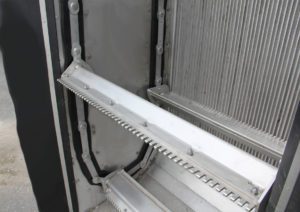
Inspect and clean rake teeth to help minimize bent or broken teeth.
Spiral screens
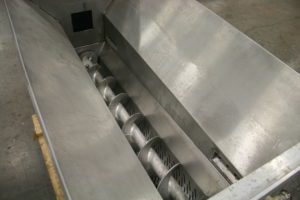
Clear the screw shaft of any large debris that could disable it.
Step screens
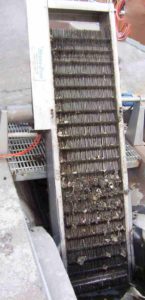
The filter grid on step screens can be easily bent and damaged, so regularly inspect the lamella.
Incline drum screens
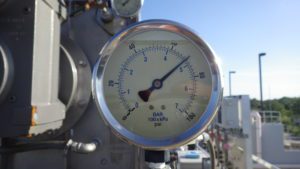
Ensure wash water pressure is at the required level.
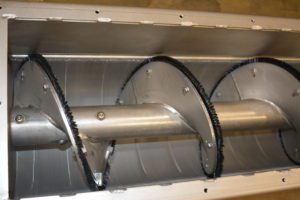
Inspect the compactor’s drive components and seals for leaks and wear.